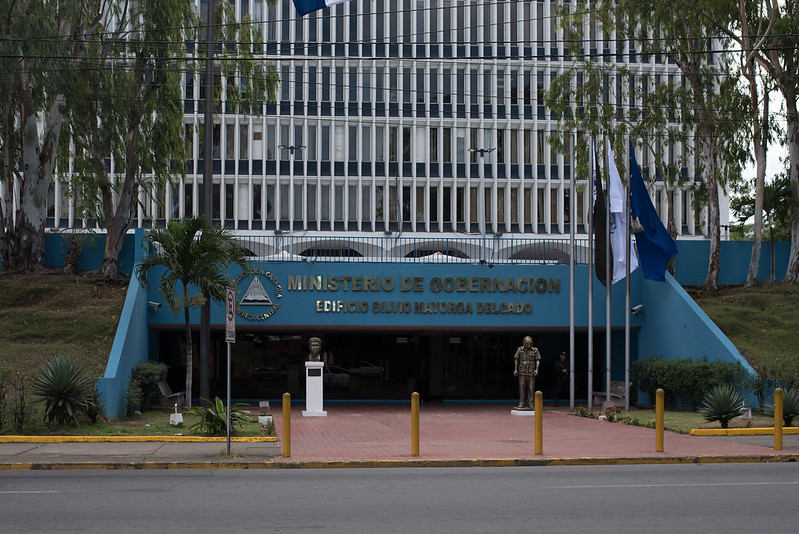Managers of the Atlas bank are exposed to administrative and criminal sanctions for alleged money laundering. The Zuccolillo’s bank had to consider the risk factors to grant millionaire credit. Atlas is under the scrutiny of the Prosecutor’s Office for not having carried out due diligence to grant a loan.
Source: By Jorge Torres Romero and Cinthia Mora
The directors of the Atlas bank could be charged with money laundering and would be exposed to a prison sentence of up to 10 years, for allegedly not having applied due diligence to grant a mortgage loan of US$ 6.5 million to a tractor driver who was the figurehead of the powerful drug trafficker Luis Carlos da Rocha, alias Cabeza Branca.
A tax case was opened in February of last year against several banks, including Atlas, of the Zuccolillo family, for their apparent links to Luis Carlos da Rocha, who was being investigated in a previous case for drug trafficking. The Public Ministry was able to determine that within the investigation into the mobster there are indications of lack of diligence on the part of some entities for the granting of credits and therefore it was decided to open another specific case for the punishable act of money laundering.

Miguel Ángel “Micky” Zaldívar, president of Banco Atlas and his wife Natalia Zuccolillo, director of the newspaper Abc Color and shareholder of the bank.
A Seprelad regulation, regarding the prevention of money laundering and financing of terrorism for reporting entities supervised by the Superintendence of Banks, entered into force on the first business day of February 2014. Its provisions are extremely clear and apply to Atlas case, because the striking mortgage loan was granted in November 2015.
Among the mandates of the resolution is the due diligence policy to be applied to the client, such as the obligation to identify and update documentation. In this sense, it states that “at the beginning of the commercial relationship, the entity is obliged to identify its clients and final beneficiaries by reliable means.” To do this, the bank “must establish identification procedures for its clients and final beneficiaries, being able to delegate said process to third parties. Responsibility for fulfilling this obligation corresponds exclusively to the entity.

Atlas Bank Directory.
This regulation also provides for a monitoring of transactions, which must contemplate measures and controls that allow the banking entity to ensure that all operations and transactions carried out by its clients and final beneficiaries, during the commercial relationship, are compatible with their profile, its economic-financial capacity and its authorized operating limit, in addition to determining that the transactions carried out are consistent with the activity and economic capacity of the client; with the purpose and nature of the business relationship and with the expected volume of operations.
Also, the entity must make the client fill out a form, with all their data. For natural persons, it must include the description of the main economic activity (service, commercial, industrial, occupation, profession, trade or other). While for legal entities, the identification of the business or the main activities of the client must appear, with the affidavit of taxes.
Banks, as Atlas should have done, are required to apply enhanced due diligence measures to customers classified as “high risk”. For this, they must obtain additional information, such as their occupation and their wealth volume, on the reasons for the transactions they carry out, corroborate in situ the existence and activity of the client, and constantly monitor the development of the commercial relationship.
To assess the customer’s risk, the bank must take into account a number of factors. In the case of Atlas, it seems that, for example, adopting criteria based on the identified area of drug cultivation or trafficking would have been avoided. You should also consider the official data that emerges to change the client’s profile.
It was the responsibility of the Atlas bank to know its client, who turned out to be a tractor driver, who acted as a figurehead for the narco “Cabeza Branca”, and who offered as a mortgage a farm that actually belonged to the criminal mobster. Faced with this apparent bad diligence, its directors are exposed today to strong administrative and criminal sanctions, in the case of corroborating the presumption that the Prosecutor’s Office has.
WHAT IS THE ATLAS BANK EXPOSED TO?
Law No. 1015, which prevents and represses illicit acts aimed at legitimizing money or goods, establishes a criminal sanction for the crime of money laundering, with a prison sentence of two to ten years. The exception is made that the judge may stop applying the penalty to the co-perpetrator or participant if he collaborates spontaneously and effectively with the authorities to discover the crime, to identify the main authors or to locate the assets, rights or values. who were the object of the crime.
The regulations also establish aggravating circumstances for employees, officers, directors, owners or other authorized representatives of the obligated subjects who participate in the crime of money laundering.
For legal persons, an administrative sanction is established, which ranges from a warning note, public reprimand, fines of between 50% and 100% of the offending operation, up to a temporary suspension of thirty to one hundred and eighty days.






